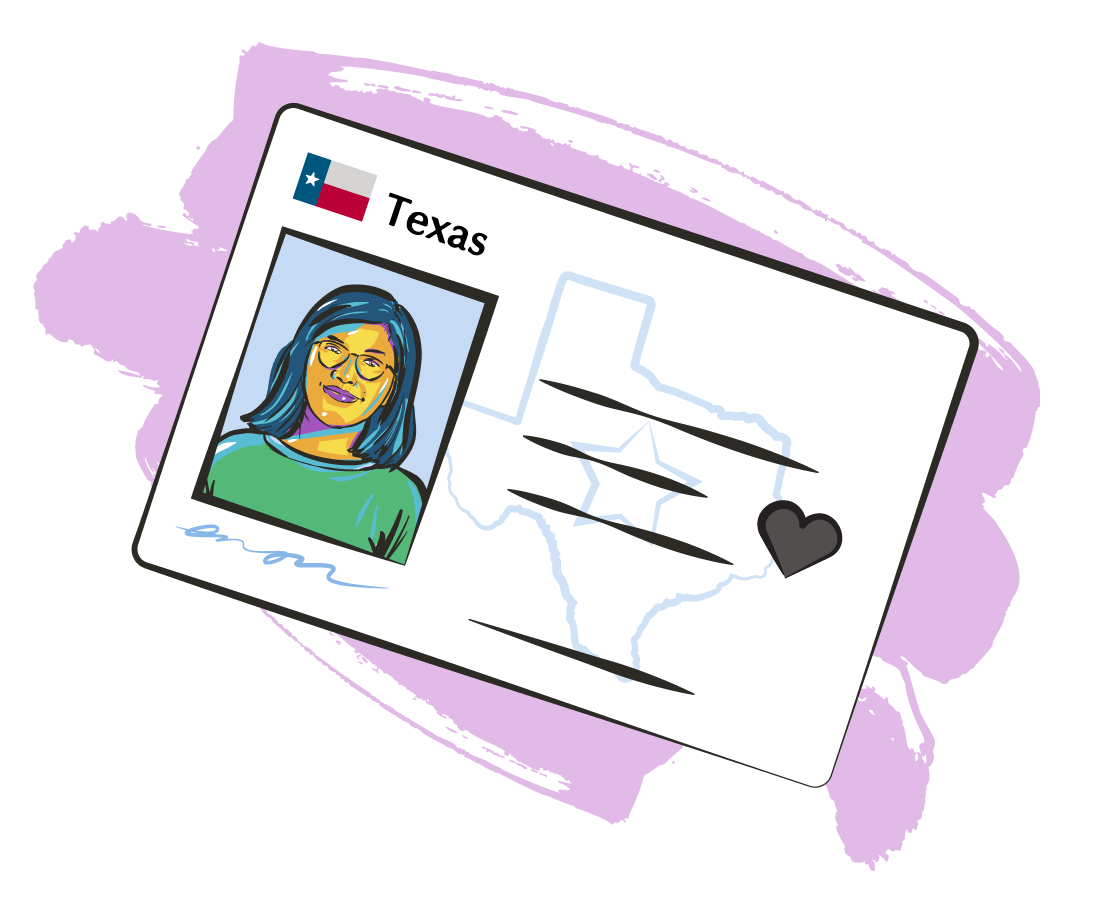TEST- CLONE Giving hope is at the heart of our community.
In Texas, community is family. And right now, there are more Hispanic Texans waiting for a transplant than there are organs available. Let our values of support and community lead the way.
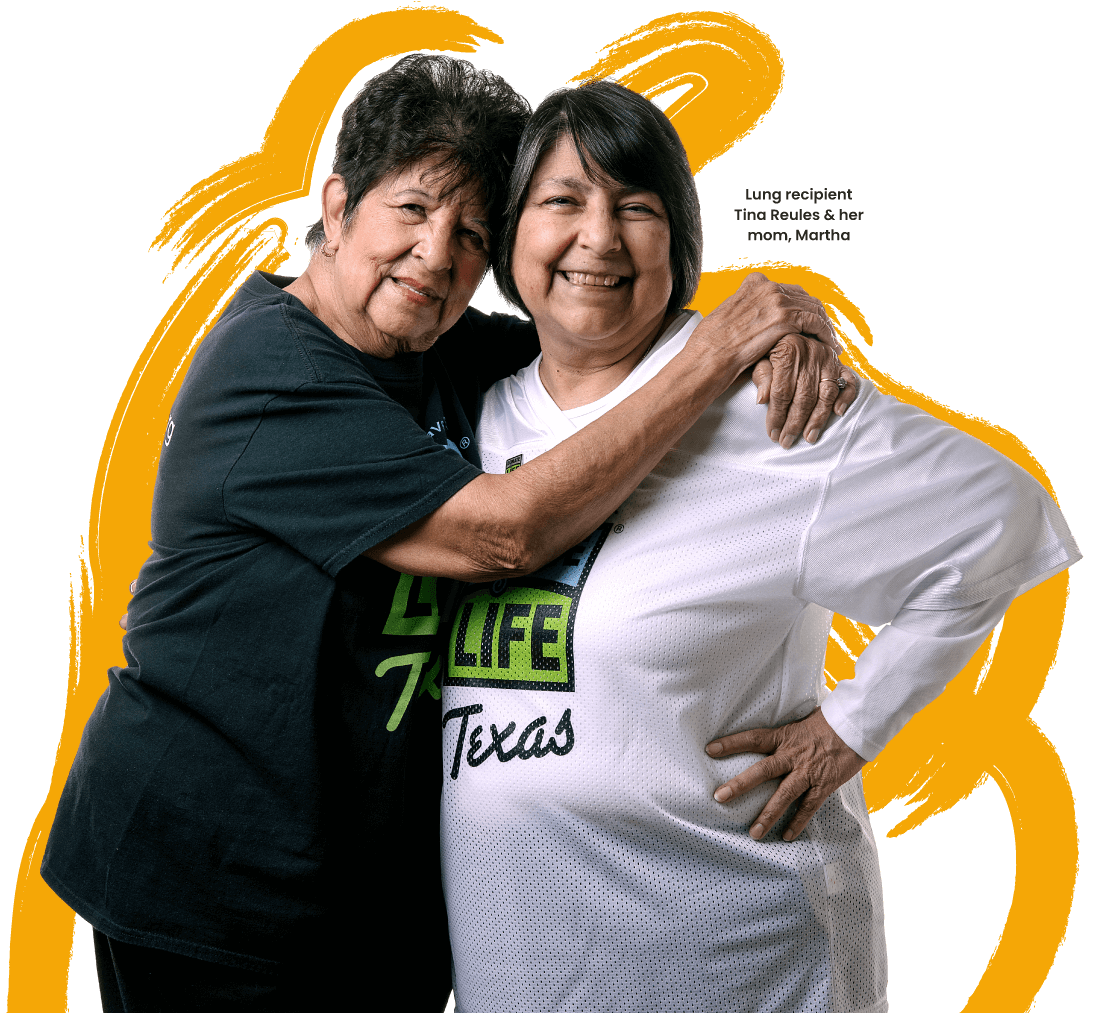
Your decision to register matters.
Organ donation is a powerful gift that can help individuals, friends and families.
You can register to be a donor on your Texas driver license or ID card. But why wait? You’re already here and can register to be a donor right now. It’s easy, private and only takes a few minutes!
Fellow Texans are in need. Did you know?
![]()
8 lives
can be saved by a single organ donor
![]()
40%
of Texans waiting for a transplant are Hispanic
![]()
44%
of Texans haven’t yet registered to be a donor
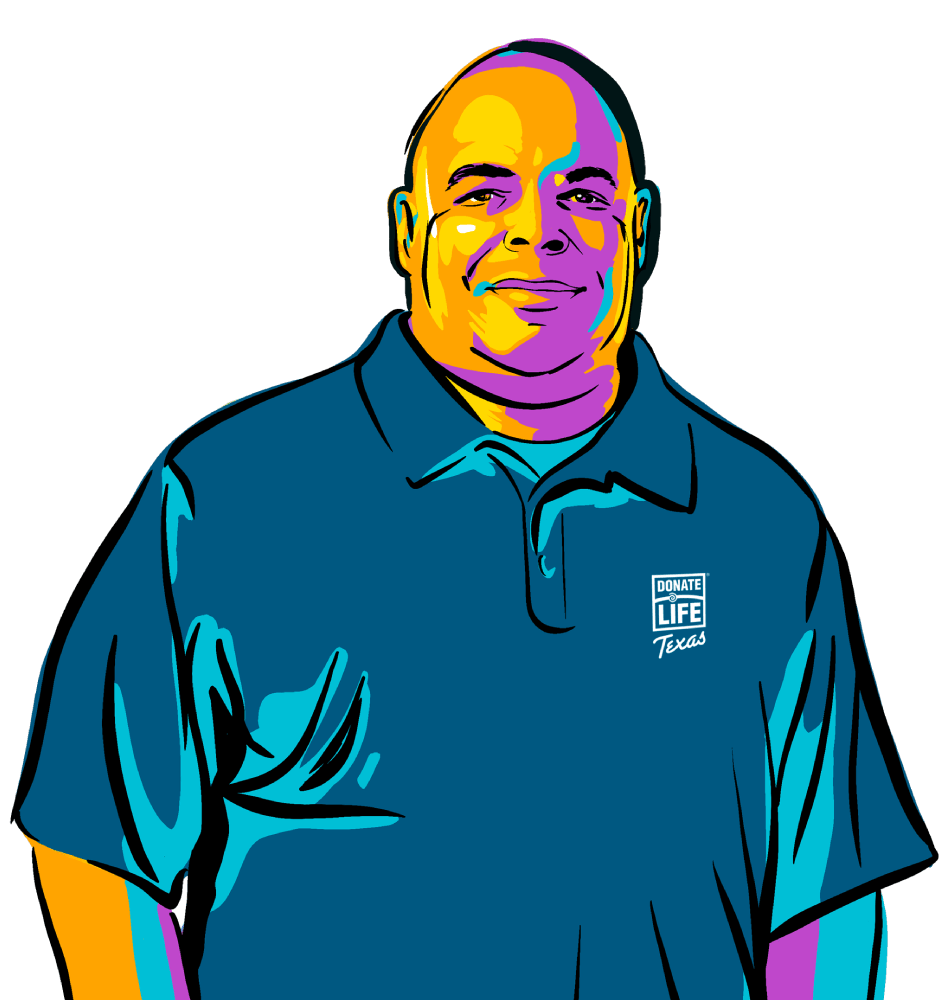
“
“It’s a great feeling knowing that our son, Omar, saved the lives of three children. Seeing the joy that another family experienced because of our decision is wonderful.”
Walter Williams, donor father
Make your decision based on facts.
It’s important to have accurate information when discussing registration and organ, eye and tissue donation. Below are answers to some of our frequently asked questions.
How does the donation process work?
Your decision to register as a donor and give your organs, eyes and tissues to others in need is at the very start of the donation process. This decision is either made by you during your lifetime or, if you haven’t made a decision, your family will be asked to decide for you.
When a person’s life ends, they are declared legally and medically dead. For organ donation to occur, the potential donor must be in a hospital and on a ventilator, which is a machine that keeps the potential donor’s organs working after death. This ensures the organs are usable while authorization for donation is obtained, medical tests and examinations are performed to confirm what’s healthy enough to be transplanted, the organs are matched with waiting recipients, and recovery can take place. Organ recovery happens in an operating room at the donor’s hospital and then organs are transported to the recipient’s transplant center where the recipients are already waiting and prepped for their lifesaving surgery.
Depending on the circumstances, people who die outside of a hospital setting may still be candidates for cornea and tissue donation, which are equally important. In these cases, donation logistics are coordinated by the funeral home or medical examiner’s office and the appropriate tissue and eye banks.
Soon after donation, the donor’s family is provided with information about their loved one’s donation, and they may receive care and support from the donation agency in the months and years that follow if they choose. Donor families often say that their loved one’s donation brings them comfort during a very difficult time.
Looking for more information about the process? Find more information here.
What does it mean to register as a donor?
Registering to be a donor means you are providing authorization for organ, eye and tissue donation after your death. If you are under the age of 18, your parents will be asked to confirm your decision if you have the opportunity to donate.
If you choose to register, you’ll be in good company. More than 13 million Texans have trusted Donate Life Texas with their donation decision. Looking for more information on Donate Life Texas? Find more information here.
Registering to be a donor does not include living organ donation, living bone marrow, blood or whole body donation. Find resources for those options here.
Does my religion support donation?
All major religions support donation as a charitable and compassionate act that saves and enhances lives, or as a personal choice. This includes all denominations of Christianity, including Catholicism. In fact, the pope has stated support for organ donation as the ultimate act of compassion.
You can find more information about religious views on donation here. Of course, you can always talk with your spiritual leader or faith community if you’re still looking for guidance.
Will doctor’s still try to save my life if I’m a registered donor?
Absolutely. Saving a person’s life is always the top priority for doctors, nurses, paramedics and emergency personnel, period. When you need medical care, every effort is made to save your life. It’s only after lifesaving efforts have been exhausted that donation becomes an option and your donor status is checked.
Additionally, access to the Donate Life Texas registry is strictly limited to the employees of organ, eye and tissue recovery organizations for the purpose of evaluating donation decisions. The professionals from the donation agency are completely separate from the medical professionals providing care in the hospital, and only become involved when death is imminent or declared.
Can I have an open casket funeral or viewing if I’m a donor?
Funeral arrangements of your choice are possible, including an open casket funeral or viewing. The donor’s body is respected and carefully prepared so that donation itself does not interfere with funeral plans.
Is my health a factor in my decision to register?
People of all ages and backgrounds can be donors, including those with common health conditions. At the time of donation, medical suitability is determined to ensure the safety of donated organs. So don’t rule yourself out – if you support donation, register today [link to register page] and tell your loved ones.
Explore our Frequently Asked Questions and learn more about donation.
Sharing your decision is a gift to your family.
Once you’ve registered, it is important that you share your decision with your family so they know you’d like to be an organ donor. If you choose not to register as a donor, and you’ve been identified as a potential donor at the time of your death, your loved ones will be asked to make that decision for you. Sharing your decision eliminates confusion, confirms your intentions and allows others to respect your wishes.
These conversations often evolve over multiple discussions. Having these conversations together makes things easier later.
Here are some suggestions to get started:
- Get inspired by these stories of Texans impacted by donation and transplantation.
- Share your individual, family and community values and how those align with your decision to become an organ, eye and tissue donor.
- Learn about the process of donation and find answers to common misconceptions
- Focus on being prepared because you care about one another and want to make the process easier at the end-of-life.
Meet these Texans whose lives have been impacted by donation.
Victor Ramirez Jr.
Tissue Recipient
Once I learned what donation really meant, I registered as a donor. Anyone can be a hero at the end of their lives.
Read storyLeticia Lopez
Donor Mom & Recipient Wife
I’m so proud of my son and I’m proud he’s living on in others. I have a son with a purpose, and it was giving life.
Read storyLucia Perez
Liver Recipient
There are a lot of myths about donation, and I always tell people to get the facts because the myths aren’t true.
Read storyVictor Ramirez Jr.
Tissue Recipient
Once I learned what donation really meant, I registered as a donor. Anyone can be a hero at the end of their lives.
Read storyLeticia Lopez
Donor Mom & Recipient Wife
I’m so proud of my son and I’m proud he’s living on in others. I have a son with a purpose, and it was giving life.
Read storyLucia Perez
Liver Recipient
There are a lot of myths about donation, and I always tell people to get the facts because the myths aren’t true.
Read storyThese stories of hope and healing connect us, and remind us that the gift of donation is a powerful, human gift from one person to another.
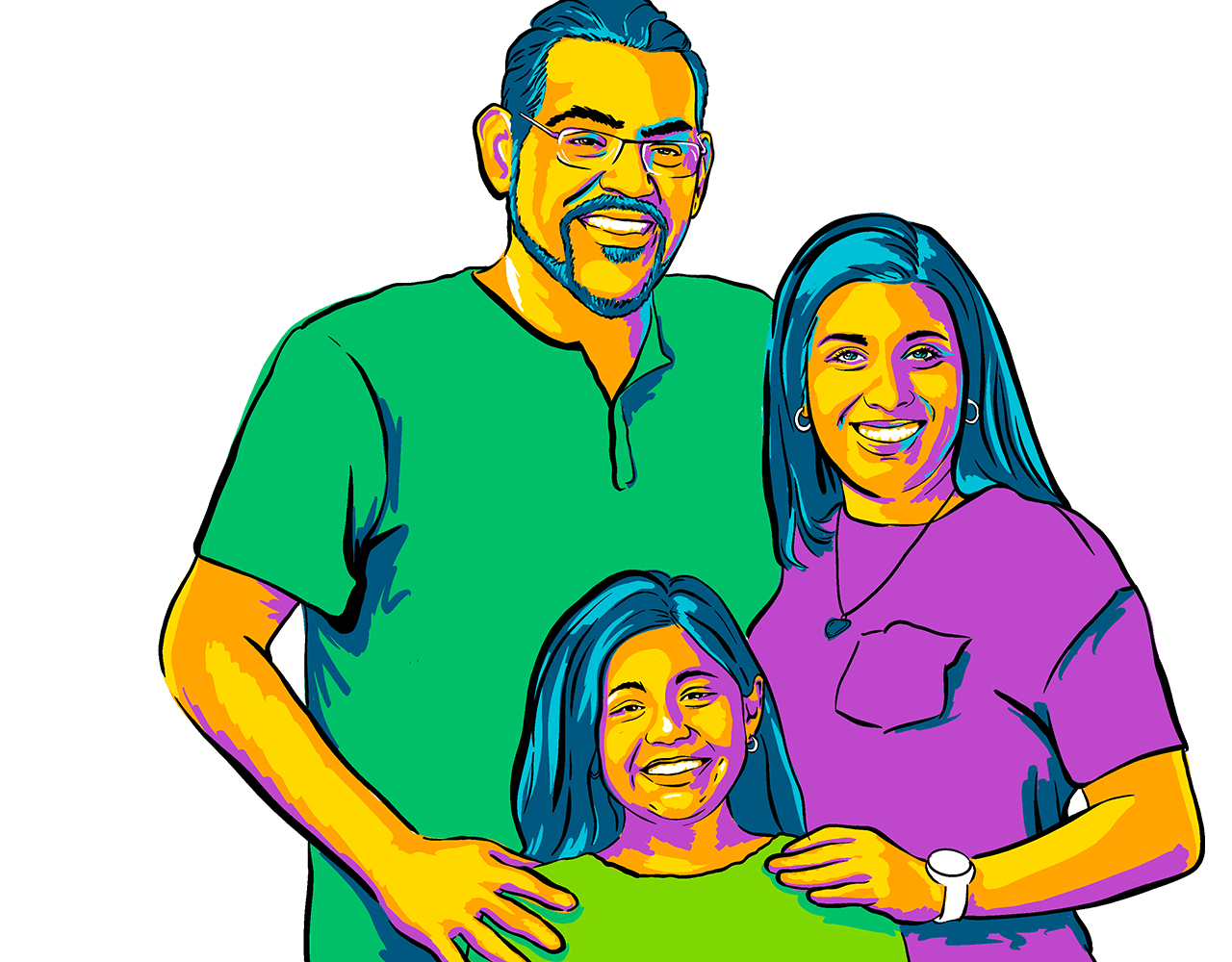
Say yes to saving lives.
Make a commitment today to register as an organ donor and share hope and life.
